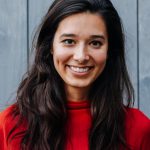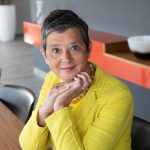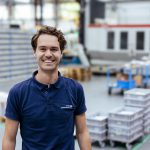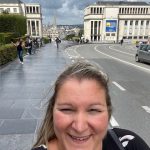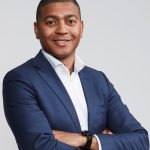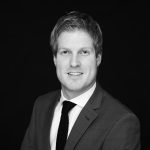Kettingbrief
Verhaallijn 1 01-06-2024
Editie 2 | jaargang 12
What has your career been like so far?
I started my career in the port of Rotterdam, in a metal factory owned by Van Leer, then one of the largest packers in the world. I worked there for a total of 10 years (internationally), as a process improver and as factory manager. In search of complexity, but in the Netherlands (because of small children) I started working at LUMC as director of facilities. A wonderful world for an engineer, at a time when the TUe did not yet realize that the logistical processes in a large hospital could be very complicated. After this I became board director of the hospital in Dordrecht and later in Gouda. Now I am the Data Protection Authority and protect the privacy of data of Europeans. Besides my work, I have always had many side jobs and volunteer roles. I sit on several supervisory boards in healthcare, sit on a government committee, coach directors and administrators, provide training on moral dilemmas and guide long-term unemployed people back to work.
Which course would you add to the IE curriculum to setup students for success?
Philosophy/ethics. With the increasing development and deployment of data and AI, it is important to keep thinking carefully throughout the process about what is really needed and what the undesirable effects may be in the longer term. By including philosophy or ethics, it becomes more normal to include this thinking from the very beginning.
What would be your dream job and how do you plan to get there?
Actually, I have everything in my combination of roles and responsibilities right now. Because of the mix, I am stimulated in different ways. There are issues I really need to chew on intellectually as well more practical challenges. I can lean on my experience and learn new things every week. Am I able to connect different worlds and can use the large network I have built to both help individuals as well as have impact on a much larger scale through my work. My studies have taught me autonomous thinking , to look for meaning and be comfortable around technology.
What was your greatest professional setback and how did you deal with it?
When I was asked to join the Board in Dordrecht, I felt resistance during the interview. At the time I dismissed it, but in retrospect, the honor of getting such a great job at a young age made me ignore that feeling. In hindsight, that feeling (of course) turned out to have been right and so I left after only 2 years. Since then, I always tried to actively listen to my intuition. For me, intuition is solidified experience, which is fed with experience, knowledge, feeling and insights. Because I fully rely on that intuition, work takes much less energy and I have had time for everything over the past 15 years.
What advice would you give current students?
To follow your heart and if you’re not sure yet, to pause and find out where it wants to lead you. And to regularly check if that is still the same.
To only go, and stay, in environments where you feel wanted and welcome; that choice has made all the difference for me since making it many years ago.
In Eindhoven you are surrounded by ‘techies’ while the world consists of a multitude of interests, talents and skills. So consider volunteer work and side jobs in addition to your studies and career to broaden your horizon and receive different kinds of insights and satisfaction.
You can change a question, which one would you change and why?
Old question:
Which course would you add to the IE curriculum to setup students for success?
New question:
What would you have liked to know before starting this role?
Why:
I became the factory director after a few years of observation, but Sten started straight out of university. I am curious how he experienced it.


